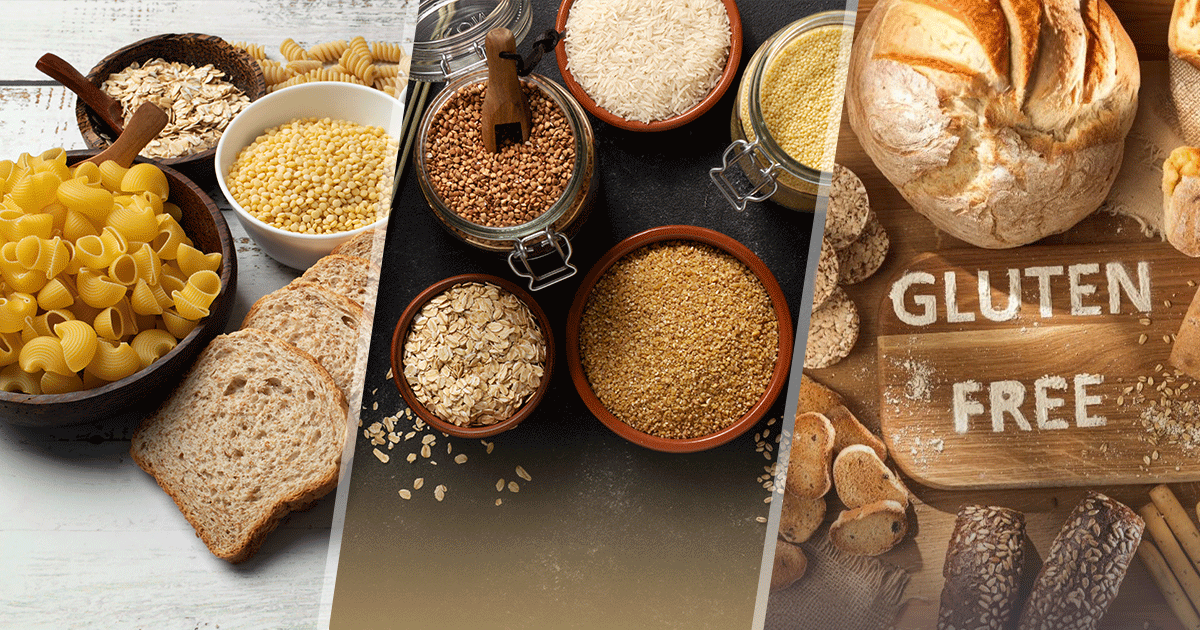
Understanding Gluten: What You Need to Know for a Healthier Life
Introduction
In recent years, gluten-free diets have become a significant trend, raising many questions about what gluten is and why avoiding it might be beneficial for some. As a leading provider of high-quality ingredients for your daily meals, we aim to educate our customers on important dietary topics. In this blog, we will delve into what gluten is, why some people need to avoid it, and how a gluten-free diet might impact your health.
What is Gluten?
Gluten is the protein found in many foods made from wheat, barley, and rye. It’s what gives bread its chewy texture and helps dough rise and maintain its shape. For most people, gluten is safe to eat and can be part of a balanced diet. However, for those with certain health conditions, gluten can cause adverse health reactions.
Why Some People Need to Avoid Gluten:
- Celiac Disease: Imagine your body has a built-in alarm system that goes off whenever you eat gluten. For about 1 in 100 people worldwide, this autoimmune disorder means that consuming gluten sets off an immune response that can harm the small intestine, causing a lot of discomfort and health issues.
- Non-Celiac Gluten Sensitivity: Some people might feel off when they eat gluten, experiencing gastrointestinal irritation, bloating, tiredness, or headaches. Even though they don’t have celiac disease, avoiding gluten can make a big difference in how they feel, helping them stay more healthy.
- Wheat Allergy: For those with a wheat allergy, gluten is just one of the proteins in wheat that can trigger an allergic reaction. This can vary from minor skin rashes to more severe reactions. To stay safe and avoid these reactions, it’s crucial for them to steer clear of foods containing wheat and gluten.
A Gluten-free Diet May Not Be Ideal For All:
- Nutrient Deficiencies: Gluten-free diets can lack essential nutrients like iron, magnesium and B vitamins.
- Potential Weight Gain: Gluten-free products may be higher in calories and sugar.
- Limited Food Choices: Finding varied and convenient gluten-free options can be challenging.
- Higher Costs: Gluten-free items often come with a premium price.
- Digestive Issues: Lower fiber intake can lead to constipation.
- Risk of Over-Processed Foods: Many gluten-free products are highly processed and less healthy.
Benefits of a Gluten-free Diet:
For those who need to avoid gluten, a gluten-free diet can offer several benefits:
- Improved Digestive Health: A gluten-free diet can alleviate symptoms like bloating, gas, and diarrhea in individuals with gluten sensitivity or celiac disease.
- Increased Energy Levels: By avoiding gluten-containing foods that can cause digestive discomfort, individuals may experience increased energy and overall well-being.
- Reduced Inflammation: Studies suggest that a gluten-free diet can reduce inflammation in the body, which may help manage conditions like arthritis.
- Enhanced Nutrient Absorption: For those with celiac disease, a gluten-free diet helps heal the damaged small intestine, improving the absorption of essential nutrients.
Making the Transition to a Gluten-free Diet:
If you’re thinking about going gluten-free, here are some tips to help make the switch smoother:
- Read Labels: Check for gluten in packaged foods and look for certified gluten-free products.
- Naturally Gluten-free Foods: Opt for fruits, vegetables, meat, fish, and most dairy products. Incorporate these into your diet to ensure a balanced and nutritious intake.
- Try Gluten-free Alternatives: Experiment with gluten-free options like bread, pasta, and cereals to find what works best for your taste and dietary needs.
- Consult a Nutritionist: Get professional advice before making major dietary changes.
Conclusion
It’s important to understand gluten and how it affects your health so you can make better choices about what you eat. Whether you have a medical condition that requires a gluten-free diet or are considering it for its potential benefits, being well-informed can help you navigate your dietary needs effectively. At Hanumanta Foods, we are here to support you with high-quality products and valuable information that empower you to make healthier choices for yourself and your family. Choose wisely, eat well, and let Hanumanta Foods be your trusted partner in health.

Comments